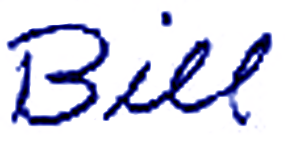Powerful Mind Part 7
Welcome to this week’s Bill Harvey Blog.
Updated May 16, 2025; Created April 21, 2023
Read Powerful Mind Part 6 | See all 12 Powerful Mind Keys

It is our conviction that the way we use our minds is the source of the breakdown in society we see all around us. Our work is devoted to communicating to as large an audience as possible, the antidote to this contra-survival mental processing paradigm.
In the interest of practical simplicity, our system of training, which we call Powerful Mind, reduces the complexity of our theory of psychology to three states: a lower Ego state characterized by what we call EOP or “Emergency Oversimplification Procedure”, the access state that we call the Observer state, and a higher state called the Flow state.
The Observer state (the temporary or permanent ability to objectively challenge one’s own prior thought or feeling) is attained far more easily than the Flow state (automatic “perfect” performance). And it is impossible to get directly into the Flow state from the lower Ego state. This is why the Observer state is important.
In this and subsequent posts, we’ll deep dive into each of these three states. Let’s start with EOP.
To current generations, EOP is the “normal everyday waking state of consciousness”. In this state, we are energized by a set of background assumptions that we do not question, and which we have lost awareness of to some extent because they have been taken for granted from long habit.
These assumptions include:
- There is almost always a sense of dilemma, something we have to fix, perhaps something as simple as a to-do list which we approach as something to get done and put behind us, not something to enjoy and take our time with;
- We must earn the approval of other people in order to feel good about ourselves—as if our own self-approval is not enough;
- We could run out of money;
- We are under time pressure because of the foregoing assumptions;
- Because of time pressure, it is important to quickly classify things into good vs. bad;
- There is too much to think about and more to think about every second, and therefore it would be impractical to think it all out—better to just make the decisions we cannot avoid making based on what is going on around us;
- It is virtually inconceivable that we could make profound changes in our experience of life on a second-to-second basis, i.e., in our consciousness;
- There is no underlying connection between our own consciousness and any other consciousness;
- It is in our best self-interest to act as if science has already discovered everything important there is to know about the nature of reality;
- We will live our lives in the best way if we simply accept on faith one set of beliefs by choosing an existing widely-approved religion or dogma;
- If we want to fit in, we must limit our conversation to materialistic topics and not talk too much about the mind, the nature of reality, or spirituality;
- If we are male, we must limit the expression of our feelings, especially outside our family or in public;
- We should ignore our hunches as worthless unless they are supported by clear and present visible proof;
- If we are male, we must treat the intuition as something feminine, which only women should have, like feelings
All of these assumptions playing in the background cause us to live lives of “tacit fear” — we are not really aware that we are always afraid. We may be intellectually aware of the fact that we have all been brainwashed by our culture (like the people in Orwell’s 1984), but we set that thought aside. EOP is all about setting thoughts aside, even though the same thought may come up thousands of times.
Suddenly realizing that you have been living a life of fear might make you angry at yourself, the world in general, and me for telling you. Anger and fear are both strong alarm systems to get our attention, like an alarm clock. They work most effectively when you get the insight as to what is making you afraid or angry, and turn off the alarm clock by focusing your will on that issue until it is resolved. That way, without distraction or crippling lack of self-belief, you can shift focus to creative and effective solutions to conquer fear, anger, and what is causing these alarms to go off.
The traditional psychological term for the center of consciousness that rules this normal waking state is “Ego”. Freud describes the Ego as the center of consciousness that is created the first time a baby is frustrated in getting something it wants. The Ego is a kind of “press agent” and “chief security officer” (think of Whorf in “Star Trek: The Next Generation”, or an attack dog that trusts and loves only its one master) that considers the self to be threatened by the surrounding environment and people and must therefore cope with that threat by defensive measures often taken in advance. As psychologist Eric Berne pointed out in his book Games People Play, in every conversation and every relationship we have, it’s as if we’ve rehearsed our responses, as if we are always playing out the same script, playing the same tapes, not being creative, spontaneous and authentic, in the moment.
For example, some people play the “Yes, but” game in every dialogue they have. They pretend to accept what the other person has said, but then negate it one way or another — the game being to find the words to use to neutralize the other person’s input. These people have become closed to new ideas, often because they are too paralyzed with information overload to be open and receptive.
There are many ways that getting stuck in a rut like this are exhibited in a person’s life. They are all symptomatic of EOP. All of us have had experiences which we never quite figured out and overcame. These create defensive patterns going forward, yet we are not really aware of what we are doing and don’t even notice our own fixed defensive games.
Once we get into the Observer state, we can see our own conditioning and consciously change our behavior to become more flexible and open-minded, able to learn from new experiences and from other people’s input. We immediately become less negative and more objective about ourselves. We stop projecting failure.
Details to follow in the subsequent posts.
Love to all,





